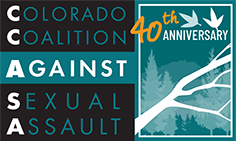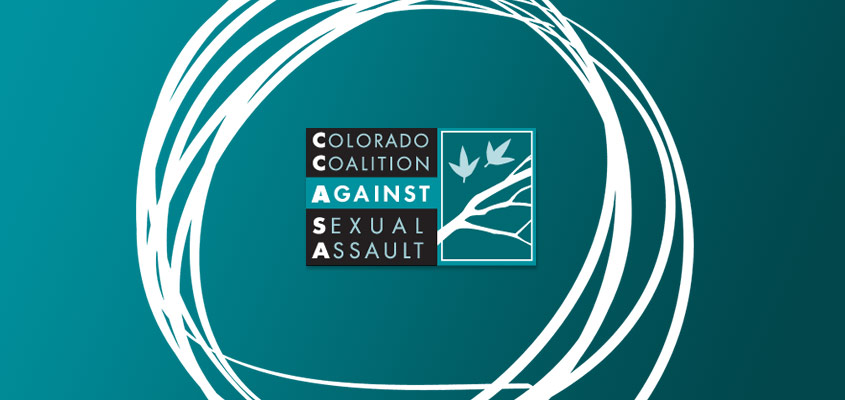By Meghann McCluskey,
CCASA Blogger
The process of publicly identifying as a survivor of sexual assault is fraught with difficulty for just about anyone who undertakes it. But not all experiences of coming forward are created equal, and it’s important to examine the ways in which one’s social positioning influences the experience of speaking out and seeking justice through the legal system. We know, for example, that rapists often intentionally target victims who lack social credibility – individuals who represent ethnic and racial minorities, persons with severe mental illness or physical disabilities, undocumented immigrants, members of the LGBTQ community, or even children within their own families – victims who are less likely to be believed in a court of law if they elect to come forward. We also know that first responders, judges, and jury pools are unfortunately influenced by the same detrimental myths that perpetuate rape culture in America: a racist, sexist, ableist, homophobic, transphobic, xenophobic culture in which rape victims are blamed for their assaults while perpetrators seldom receive substantial punishment for their actions.
Jessica Testa of Buzzfeed recently published an article that celebrates a turning of the tide in which increasing numbers of rape survivors are coming forward to reveal their identities in the media and – in some instances – to publicly name their attackers. The survivors featured in this article, including Courtney Andrews, Nancy Ziegenmeyer, Emily McCombs, Daisy Coleman, Lydia Cuomo, and Alexandria Clarke, epitomize courage, strength, and resilience in the face of immeasurable adversity. As do other heroic women like Marianna Taschinger, a victim of “revenge porn” who is championing federal legislation to penalize the nonconsensual distribution of naked photographs, and Michigan State Senator Gretchen Whitmer, whose recent emotional disclosure as a rape survivor lent a vital degree of personalization to a debate regarding insurance coverage for abortions.
These survivors – and countless others like them – are fearlessly taking a stand against the silence and shame that so often shrouds sexual violence in this country. Their stories serve to politicize a social issue too long considered private, and they help pave the way for other survivors to make their voices heard. However, as Testa herself points out: “Survivors raped by friends or family members often don’t report their attacks to authorities. The media covers the assaults of white women far more often than the assaults of women of color.” Indeed, virtually all of the women profiled in Testa’s article were assaulted by an acquaintance or a stranger rather than a family member, and all of them appear to be white. Many of these women also seem to possess additional resources that facilitate the process of publicly identifying as a survivor: they have the support of friends and family, they have financial means, they have college degrees and/or socially respected professional positions, they are U.S. citizens – the list goes on. None of this is meant to in any way minimize the immense bravery embodied by each and every one of these survivors in their decisions to step into the public eye. But the media attention received by these women reflects the ways in which one’s social standing directly influences one’s ability to be heard and recognized as the victim of a sexually violent crime.
I agree wholeheartedly with Testa that we should celebrate and uphold survivors who speak publicly about their sexual assaults. But we should also make efforts to promote the stories of survivors whose narratives of sexual trauma receive less attention in the mainstream media: survivors like Zerlina Maxwell, Luisa Gonzaga, Niki Sinclair, and Peggy/Kyoungwon. Sometimes this requires us to deliberately seek out alternative media outlets and resources like No! The Rape Documentary and FORGE, a trauma-informed information hub for transgender survivors of violence. We should pay attention to articles like this one that highlight the experiences of male-identified survivors of sexual assault, or this one that underscore the prevalence of sexual violence among populations with developmental disabilities, or this one that point to the significantly increased risk of sexual assault faced by homeless people. Lastly, we should respect fully and completely any person’s decision not to identify publicly as a survivor of sexual assault, regardless of their identity characteristics. Rape culture is alive and well in America, and it is therefore essential that we as a collective society work towards shifting this culture, rather than placing this responsibility squarely on the shoulders of those attempting to heal from the trauma of sexual violence.

